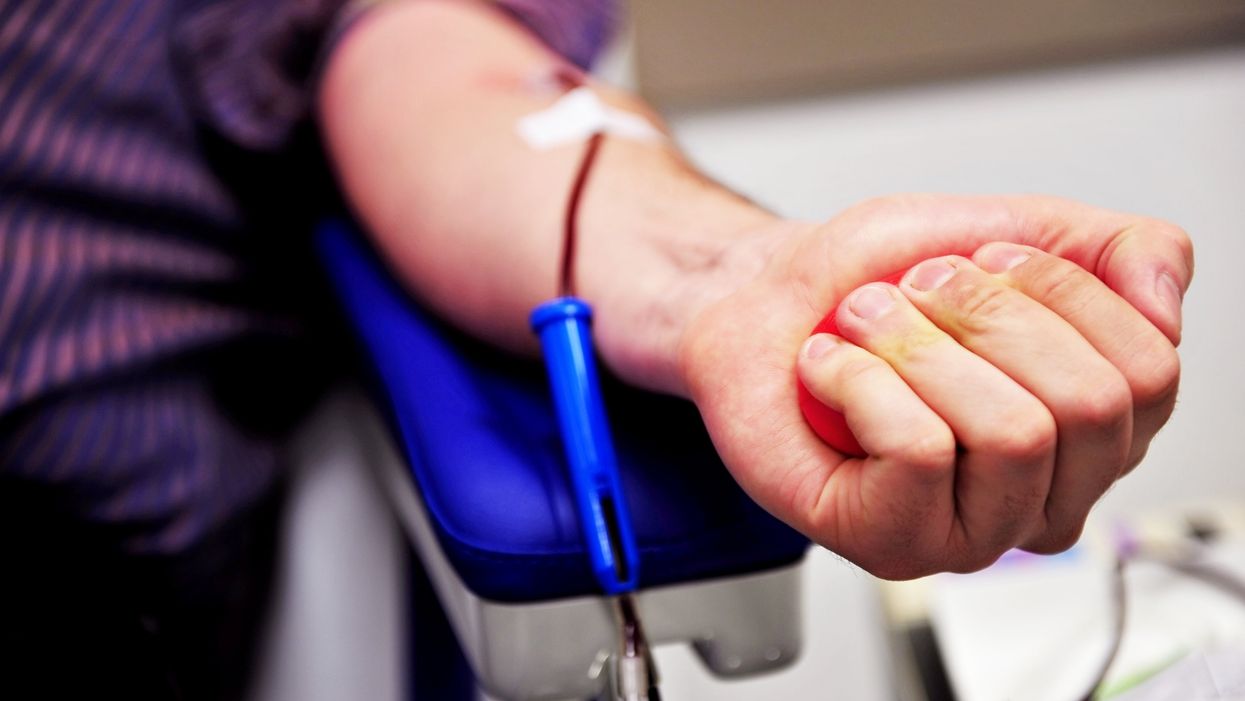
The NHS is loosening restrictions for gay and bisexual men to give blood, it has announced.
Under new NHS Blood and Transplant (NHSBT) rules, which come into effect in 14 June, those who have had the same sexual partner for the last three months or have had no recent exposure to an STI can donate blood, in contrast to previous rules in which they had to abstain from sex for three months before being eligible.
Lord Bethell, the minister for blood donation, said in a statement that the change marks a “significant step forward” to making blood donation policy “fairer and more inclusive”, allowing as “many people as possible to make the life-saving decision to give blood safely”.
The ban on gay and bisexual men donating blood was first introduced in the 1980s, when the UK was in the throes of the AIDS crisis and little was known about how HIV and AIDS was transmitted. By 2011, the ban was changed to a three month abstention, but campaigners argued that the policy was still discriminatory and wasted blood.
In December 2020, the government acquiesced and an advisory committee acknowledged that “all donors”, including heterosexual people, have the potential to carry infections. Now the changes that were approve then are due to begin.
Read more:
- Pregnant OnlyFans star is planning to live-stream birth to subscribers for £10,000
- Snorkeller in Australia found groom’s missing wedding ring wrapped around the body of a fish
- We can’t stop watching Curtis and AJ Pritchard on Hollyoaks
- TikTok influencer finds out boyfriend is cheating thanks to live photo blunder
- Jackie Weaver opens Brit Awards with hilarious Line of Duty sketch with Jack Whitehall
All donors, regardless of gender, will be asked the same questions about their recent sexual behaviour, meaning that eligibility to donate will be based on a more individualised assessment.
Donors who have had anal sex with a new partner or multiple partners in the last three months will not be able to give blood but may be eligible in the future.
Nancy Kelley, chief executive of Stonewall, said the charity supports a donation system that “allows the greatest number of people to donate safely”. She added: “By linking donor eligibility to health, travel and sexual activity with an individualised assessment of risk, these changes will help ensure more people, including gay and bi men, can donate blood.”
FreedomToDonate, a campaign group, also celebrated the change:
“It’s about saving lives... for a lot of people, they’ll no longer feel like they’re not good enough.” Our own… https://t.co/PD0CU7VadX— FreedomToDonate (@FreedomToDonate) 1620749492
It’s great to see progress in action.













